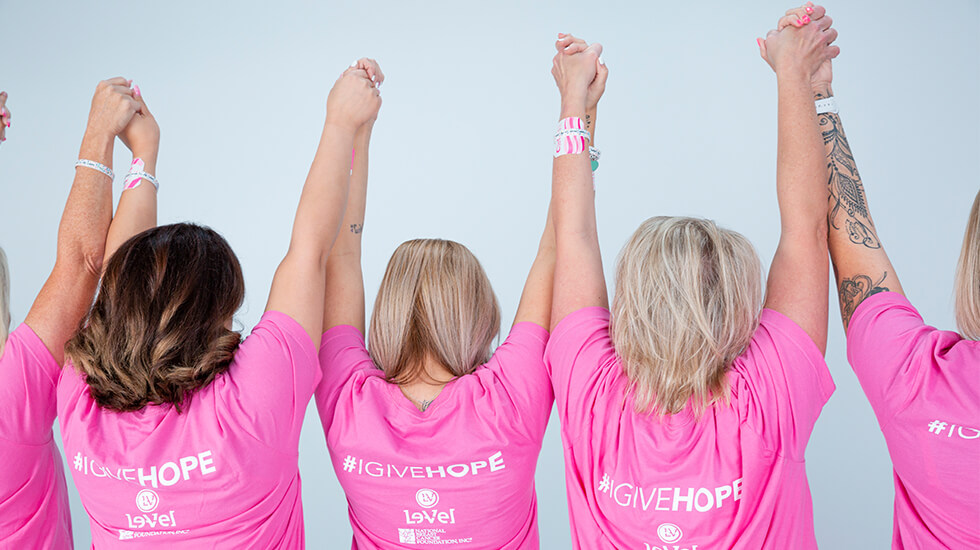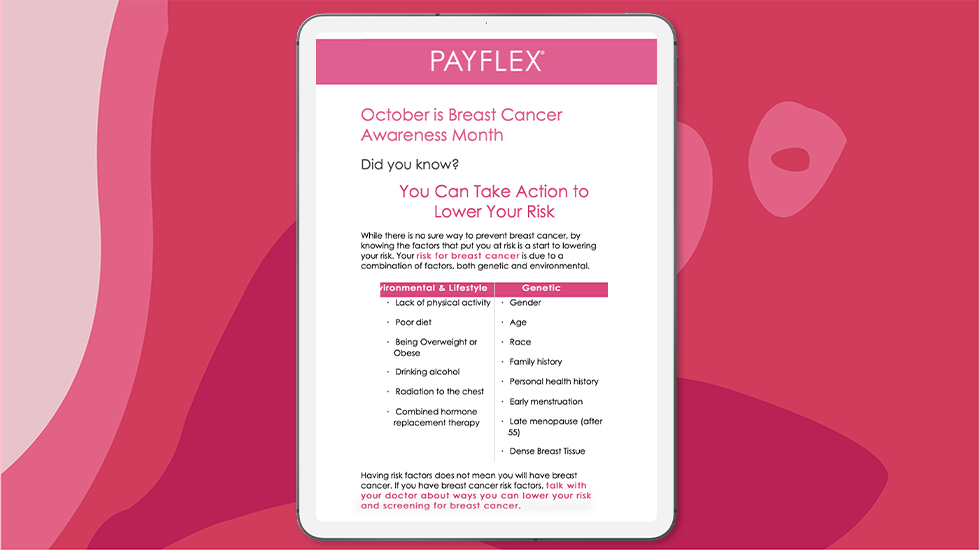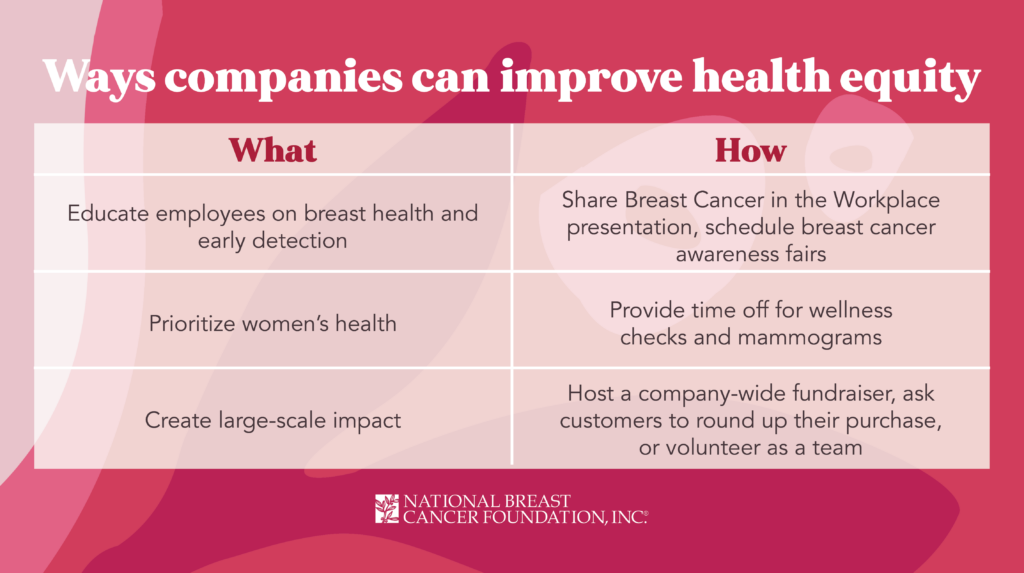


Note: Written by NBCF Chief Program Officer, Douglas Feil.
Last May, a story about a factory worker in Chicago made headlines around the country. The factory worker was in the emergency room complaining of a swollen breast. She’d noticed a problem months before, but she was afraid to miss work during the pandemic.
She spoke little English and was unable to have her translator, her son, accompany her to the hospital. She texted him in Spanish and hoped for the best. She was later diagnosed with metastatic inflammatory breast cancer and faced life with an incurable illness that may have been survivable had it been found earlier.
Stories like these are sadly common, and, in all of them, certain themes emerge. One is the fear of losing a job or not having time off work to keep an appointment.
The theme of fear creates gaps in optimal health and access to quality care. Companies, organizations, and charitable partnerships can help bridge those gaps.
The first thing a business, company, or organization can do to reduce health disparities is to educate their employees about breast cancer and early detection, promoting wellness within and outside of the workplace.
NBCF offers a program to do just that – Breast Cancer Awareness in the Workplace, a presentation that offers employees education on breast health, the importance of early detection, how to support a loved one or co-worker diagnosed with breast cancer, and how to accommodate the workplace for patients.
PayFlex dedicated the entire month of October to promoting breast health and breast cancer awareness. Each day, employees received a story from a fellow staff member impacted by breast cancer or information on breast cancer in their inbox.
Donna, Sr. Manager of COBRA Operations at PayFlex, shared: “Our goal was to drive awareness. Stories touched on different aspects, including: How early detection saves lives, encouraging annual screenings, thanking researchers, and the impact of treatment on survivors. It started with the leader of the [campaign]. Then it was my day, and it was my 5-year anniversary of being cancer-free. It just continued with stories and information on breast cancer awareness. In total, 16 colleagues shared stories of how breast cancer touched their lives—survivors, loved ones, and those who lost loved ones.”

Because of Donna and the efforts of their team, multiple staff members made the step to schedule their mammograms or wellness exams. Three staff member shared their plans.
“Thank you. These personal stories were real eye-openers for me. I scheduled my screening for next Tuesday. I wanted you to know this campaign has touched at least one person.”
“Thank you! This has been a great month to hear these stories. Getting all of my well check/mammogram visits set up.”
“The stories that were shared were both touching and enlightening. I admire the strength of everyone that participated. It certainly left a lasting impact on me. I was inspired to make my appointment which is scheduled for next month for my mammogram.”
Companies should also prioritize women’s health, including accommodating time off for well checks and screening mammograms. If employees feel like they can’t take off or keep a medical appointment because of the demands of the job, the message about the importance of health will be made clear.
Some employers even contract with health systems to lower the cost of screenings and utilize health promotion managers to ensure services are being utilized. Being proactive and promoting these services helps eliminate barriers—access to care, cost of screenings, and knowledge of benefits—that can lead to disparities.
Cancer prevention and early detection also significantly reduce the cost of insurance premiums, which improves the bottom line.
Businesses can further their impact on health disparities by supporting organizations, like NBCF, that provide help and reduce inequalities in healthcare. Whether you start big or small, it’s meaningful to both customers and employees to align with a worthy cause.
Here are three examples of what a cause-based partnership can look like:
When companies offer the opportunity to get involved in reducing health disparities or creating health equity, customers and employees feel goodwill toward the company with the possibility of exponentially more money being raised.
Remember: All of us have a role to play in reducing health disparities in breast cancer. The goal is health equity.
The NBCF team is here to be a resource to you and your company. Together, we can bridge the health equity gap for millions in need.

NBCF is committed to ending health disparities. Read “Disparities in Breast Cancer Threaten Progress for All” and “What You Can Do to Support Health Equity” to learn more.
Donations are always appreciated, but there are lots of great ways to get involved.
I love how you guys support beast cancer and I just had monogram done Thursday so I’m waiting to my results back but I was diagnosed with MoyaMoya disease and Epilepsy so I torn because all three are all serious condition how can promote all three would be my question!!??
Hi Shenike! We would love to have you as an advocate for promoting breast health and supporting the breast cancer community. You can see ways to get involved with NBCF by visiting https://www.nbcf.org/breast-cancer-support/.